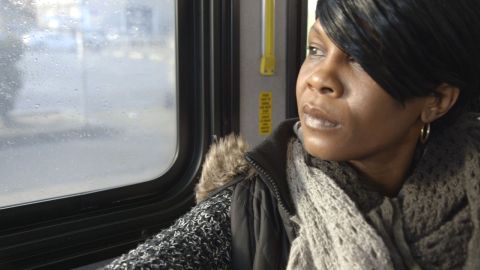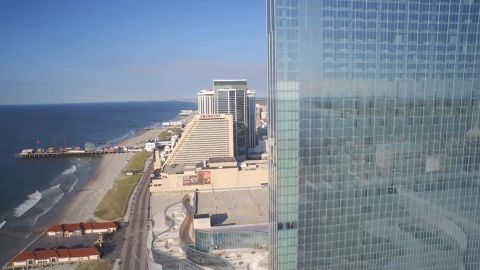Learn about the heady optimism as Atlantic City pioneered the idea of using casino gaming to revitalize a depressed urban community.
♪♪
>> Atlantic City of my youth was
a very interesting town.
We didn't have gambling at that
time, but we had a bustling
tourism trade.
The boardwalk was filled.
Kentucky Avenue was in its
height, which was the mecca of
African-American entertainment.
And I didn't realize that I was
poor until I went to college.
>> In the '60s and '70s, if you
were fortunate enough to have a
government-related job --
police officer, schoolteacher,
something like that -- you were
okay.
You had year-round work.
But everybody else was in a
seasonal work.
People would work from May until
October and then live on
unemployment and whatever they
could scrape together during the
wintertime.
It was a very, very grim
existence for the average person
that worked in the city.
♪♪
>> Atlantic City had been a
really vibrant tourist community
at the turn of the century.
It really drew the emerging
middle class from urban areas up
and down the East Coast to come
to these marvelous, old hotels.
We had the first boardwalk in
the country.
So, this new idea of the middle
class having enough money to go
on vacation?
Atlantic City was really a part
of this new idea.
>> But in the 1950s, with the
popularization of air flight,
Americans began to go farther
and farther away on their summer
vacations.
So, taking a train or a short
drive to Atlantic City became
less and less popular.
In the 1970s, Atlantic City was
in decline, and it had been in a
steady, secular, long-term
decline for quite some time.
So, that was the economic era
where Atlantic City was looking
for something new, something to
bring the city back, something
exciting.
And the thought of casino gaming
came on the table.
>> The whole thought here was
that we have the ability to
bring millions more people into
the city if we had an
attraction, and gaming seemed to
be the easiest way to do that,
since it was only in Las Vegas
at the time.
The underlying reason was to
provide jobs that were
year-round, that had some
medical benefits, some
retirement, and a future.
The talk started when I was in
about fifth grade.
At the dinner table, the signs
in people's windows -- I think
it was the only time in my life
the entire community was focused
on one objective.
And it didn't matter who you
were.
Didn't matter whether you were
black on the north side or
Jewish from Margate or Italian
from Ducktown.
None of that mattered.
This area was absolutely
consumed with getting gaming to
Atlantic City.
>> If they would have a
referendum in Atlantic City now
for the poor people -- the
minorities, the elderly -- to
vote for gambling, they would
vote gambling down.
I remember taking a very active
position against casino gambling
because my belief was that
gambling was a corrosive social
activity, that it preyed
disproportionately upon poor
people.
And if everything continues the
same way as it is now, a year
from now, there's a significant
amount of people won't even be
here.
They will be moved out by the
rapid development of commercial
interests.
>> Atlantic City really
pioneered this idea of taking
a depressed, urban community and
trying to turn it around with
casino gaming.
There were four promises made to
the people of Atlantic City and
the people of New Jersey.
The first was tax revenue.
The second was good jobs.
The third was economic
development for the city as a
whole.
And the fourth was to lower
crime rates.
>> The night that the election
happened, I remember people
screaming in the streets, horns
beeping.
It was a huge celebration.
>> School was recessed.
City workers got time off.
And New Jersey's governor,
Brendan Byrne, signed the new
state law permitting the
gambling to go ahead.
>> The good feeling went on for
years after that.
>> Once, this was one of the
most famous resorts in the
world.
In recent years, it became a
slum of resorts.
But now the old place has been
rescued, and its future success
would seem to be guaranteed.






